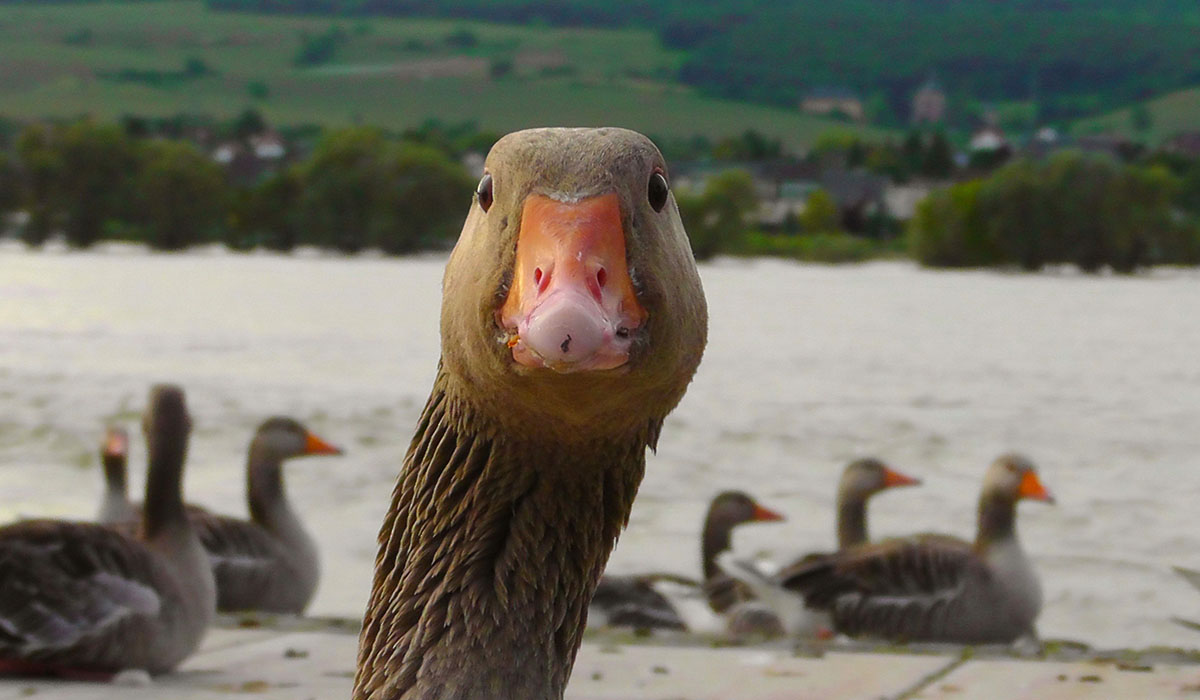What Teamwork Has to Do with Geese — and Why It Matters More Than Ever
✨Key Points
Shared Leadership Works – Great teams rotate responsibility; no one leads forever. Everyone contributes to collective momentum.
Empathy Sustains Performance – Supporting weaker or tired members isn’t weakness — it’s how teams stay strong in the long run.
Communication Fuels Alignment – Like geese honking in rhythm to encourage each other, teams thrive when feedback and appreciation flow.
Collective Energy Beats Individual Burnout – Shared goals and collaboration reduce stress and create a sense of belonging.
Nature Models What Business Often Forgets – Success is less about speed and more about sustainable synergy — knowing when to lead, follow, or lift others.
When was the last time you really thought about what makes a team work?
Not just hit deadlines, but move together with purpose — like one living, breathing rhythm.
That’s where geese come in.
It may sound simple, but their way of flying holds timeless wisdom about how people and organizations can thrive.
Geese don’t compete for attention. They cooperate.
They don’t lead from ego; they lead from rhythm, trust, and direction.
When one goose takes the front, the others follow in formation, reducing wind resistance and sharing energy.
When that leader tires, another takes its place — no hierarchy, no resentment, just flow.
And when one goose falls behind, two others slow down to help it catch up. That’s not strategy — that’s empathy in motion.
In a world where burnout and individualism often dominate, this is the reminder we need: true leadership doesn’t push — it uplifts.
True teamwork doesn’t just divide tasks — it shares the journey.
Maybe that’s the quiet wisdom of geese: when we lift together, we go farther, faster, and with more heart.
Geese Cooperate without Hierarchy
The main reason that you will find geese flying in a V formation is that it makes it easier for them to soar towards their collective destination. Each goose creates an uplift for the geese behind.
This means that flying in the front is harder while flying in the back is easier.
Instead of having a single leader doing all of the heavy liftings, geese rotate leadership.
All members of the flock share the burden and work as a team. This is what makes them efficient in their migration.
If a goose flies out of the formation, it will quickly return to the cooperative structure because it will struggle to fly on its own.
Geese see that their mutual goal is best achieved when all members are invested and divide responsibility equally.
Efficient leadership creates a shared vision that all members of the team will want to put effort into achieving.
If you ensure each person on your team is invested in your group’s goals or shared vision, many of the difficult aspects of leadership will fade away.
Another lesson you can learn from the cooperative nature of geese is the importance of sharing the burden.
Heavy is the head that wears the crown, but it doesn’t have to be.
Make sure responsibility is well-distributed and give all members a real voice in decisions.
This way, you will find yourself with a cohesive, efficient team.
Positive Communication and Motivation
While geese in the back of the flock have an easier time flying, they still participate in supporting the team.
They honk encouragement to the geese in the front, motivating them to keep going at their hard work.
This leads to more success.
To be a successful leader, you must foster positive, encouraging, and constructive communication amongst team members.
This will make your workplace more collaborative and vibrant with positive energy, motivating more effective teamwork.
Collectivism and Care
In geese culture, a loss for the flock is a collective loss. In a way, geese follow the “no man left behind” policy.
When a goose falls out of formation due to illness, two other geese will stay behind to provide support and care.
They will do this until the sick goose is healed and ready to fly again.
It’s no secret that workers are more productive when they are healthy and feel valued.
They also tend to be happier and more invested in being part of the team. Caring for your staff and creating an environment of collective well-being is an excellent leadership strategy.
Observing Geese
After reading all of this, you may feel the urge to observe geese behavior for yourself.
However, migrating geese are often on the move, so you might have to wait.
Don’t fret, there are plenty of other bird species to observe.
Owls are a perfect example.
They are easier to observe because they invest in finding stable nests.
You can research the best owl nesting boxes and set one up in your own backyard!
By observing owls, you can learn a lot about honing your senses and dealing with harassment.
Learning from Friends That Fly
Birds have always been observed by humans as omens and harbingers of the future.
When we take the time to observe other animals, we gain useful wisdom and insight, something our ancestors knew quite well.
Learning from geese may sound silly in the face of giant skyscrapers and daring space programs, but there is something to be said for maintaining the ancient practices that brought our species to this level of technological development and progress, and studying birds and their behavior is an excellent place to start.





















